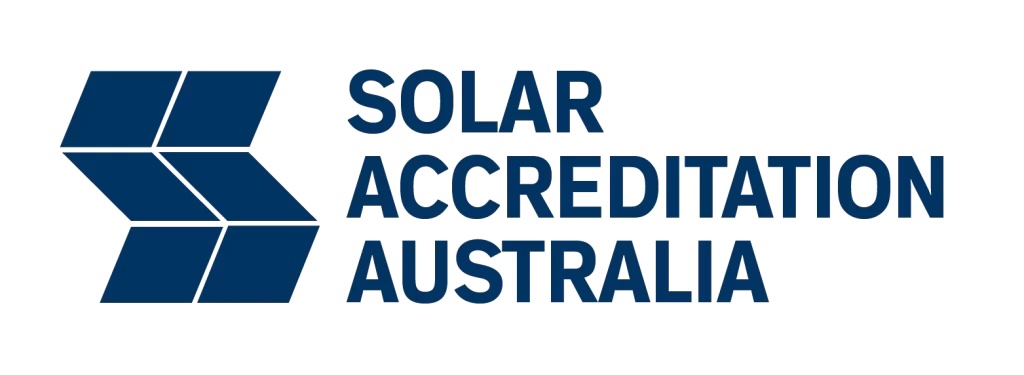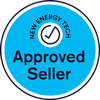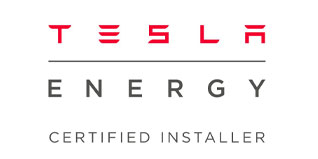Is solar power worth it in South Australia? It’s a question we get asked all the time and for most households, installing solar panels is worth it.
Solar panel prices are at a record low, with an average-sized 8kW solar system with good quality panels now costing as little as $8000-$9000 fully installed, generating over 30 kWh a day averaged out across the year.
If we assume you are paying 30c per kWh, you can expect to save well over $3,000 every year on your power bills with an 8kW system if you use all of the solar power as it is generated.
Reduce Electricity Bills
With electricity prices continuing to skyrocket across Australia, households are rushing to install solar power to reduce their power bills, especially now that solar panel prices in Australia are at an all-time record low.
The price of good quality solar panels is now so affordable, it is possible to get a return on your money in 3-5 years. Let’s break these numbers down to help you figure out how much you need to pay for a solar power system to determine if solar power is right for your household.
How much do you want to save a year on your power bills?
Firstly, the benefit of solar power in Adelaide, South Australia is that it reduces your power bill by around $400 per year per kW of solar, so if you install an 8kW solar system you can save up to around $3,400 a year, or $850 every quarterly bill.
 |
 |
If you also install a solar battery, you can come close to replacing your entire power consumption with solar power, in which case we would normally size up your solar system based on your average daily power usage (24 hours) rather than on the amount of power you are using during the daytime.Typically, the smallest solar system we install is a 5kW system, which will generate around 20kWh a day, and it can save you up to around $500 a quarterly bill if you use all of the solar power as it is generated. Therefore, we generally recommend you have a quarterly power bill of at least $400-$500 to be able to get any significant saving.
As explained above, if you are planning on installing battery storage, rather than needing to use at least 32 kWh during the daytime for an 8kW system, you only need to have a daily (24 hours) usage of 32 kWh a day. Solar batteries allow you to store the excess solar power to then be used in the evening as needed.
If your power bill is more than $500 a quarter, a solar power system will almost certainly be of great benefit, and as a general rule the larger your power bill, the more money you can save, and hence the more a solar power system will be worth it.
How much do you pay for your power?
Read your power bill to see how much you pay for your power (plus add GST). For every kWh of solar power you use in the home during the day, this is what you will save. With a solar system in Adelaide, it is typical to pay around 25 to 35 cents a kWh if you pay a flat rate, and up to over 50 cents a kWh during the peak billing period if you are on time of use billing as shown here:
Compare this to the cost of solar
Solar power only costs around 5 to 6 cents a kWh to produce, making it a no-brainer to run as much of your home as possible off solar power. So yes, solar power is worth it!
Solar power is fed into the home to be used as it is generated, so by using solar power, you are not buying power from the grid. If you don’t use the power as it is generated it is fed off to the grid and you will get paid a small amount for this from your energy retailer. Typically you will get around $10-$30 a quarter as a credit on your bill, and the smaller the credit the better as this means you are using most of your solar power as it is generated. For more information on this please read how solar power reduces your power bill.
To work out how much power you use during the day, simply read your meter (in your meter board) in the morning and then again at night. Subtract one number from the other and it will tell you exactly how much power you have used during the hours in which your solar system will be generating electricity.
With solar storage now available, it is also possible to further reduce your power bill and run your house almost entirely off solar power. Solar batteries store power that would otherwise be sent to the grid to be used in the evening.

Do You Really Save Money With Solar Power?
The payback of a solar system has become so good, many people are surprised to find out it is now possible to get a good quality system to pay for itself in as little as 3 or 4 years.
It wasn’t all that long ago that solar systems took 7 years or more before breaking even, so many people are now oversizing their array for a slightly longer return, with the benefit of being able to use more power over a hot summer by running the air conditioner more often, or with the expectation that they will add battery storage in the near future.
As a general rule, a solar power system will save you up to around $400 per year, per kW. For example, an 8kW system will save you up to around $3400 a year, giving you more power in summer compared to winter.
This also helps you choose what brands to go for. If you know an 8kW system is going to save you up to around $3,400 a year on your bills, you can then decide whether you want mid-range panels for a 3-year return on your money or a top of the range system with a 5-year return.
If the top of the range system comes with a 25-year product warranty and on average lasts 7 years longer than cheaper Chinese made brands, then often people will justify a larger outlay for the increased reliability and longevity. This will depend on how long you intend to stay in your house and how much you want to spend on a solar system.
One of the most important points to consider is how quickly you want the system to pay for itself. Typically the best-case scenario is a return on your money in 3 to 4 years. A return on your money in less than 3 years typically requires buying very cheap components that are likely to less reliable, and an ROI of longer than 5 years typically means the system has been over-sized. As mentioned above, oversizing your system is often a very good idea, especially if you are planning to add battery storage.
If you are comfortable with a longer return on your money, the two main options are to go for better brands or a bigger system. We can help you with this, and of course, it is entirely up to you which way you go, however, the one tip we do like to emphasise is that with solar you absolutely get what you pay for, which is an increase in quality, longevity and system performance.
How much do solar panels cost in South Australia?
The hefty price tag unfortunately remains a major impediment for those looking to install solar panels. Typically, a South Australian household can expect to pay between $2,500 and $10,000 for a new solar system fully installed. This, of course, depends on the make and size of the system. For a smaller system (3kW and under), you shouldn’t expect to pay any more than $4,000. If you’re in the market for a much larger system – say 10kW – then it should cost in the vicinity of $8,500.
So is solar power worth it?
The message is simple – if you have the budget for a good quality system from a reputable installer, solar power is absolutely worth it. When sized up properly, it is possible to get a return on your money in as little as 3 to 5 years and have a problem-free investment that generates clean energy for decades – over 25 years with the better brands. A 5kW system can save you up to around $50,000 on your power bills over the life of the system, money that is taken directly from the books of the coal industry.
Furthermore, solar storage is now available, enabling households to run their home almost entirely off solar power. Solar & Storage systems are quickly becoming the norm, as households look to increase their energy independence and maximise the consumption of solar power in the home.
Solaray offers extremely competitive pricing on all of the top brand names; from the best Chinese manufacturers right up to the best high-efficiency modules on the market from companies like LG Solar.
Millions of Australian households now have solar power because the numbers simply make sense. When sized up properly solar power costs as little as 5 cents a kWh. Compare that to what you are currently paying and it quickly becomes apparent that solar power is worth the money for most Australian households.





